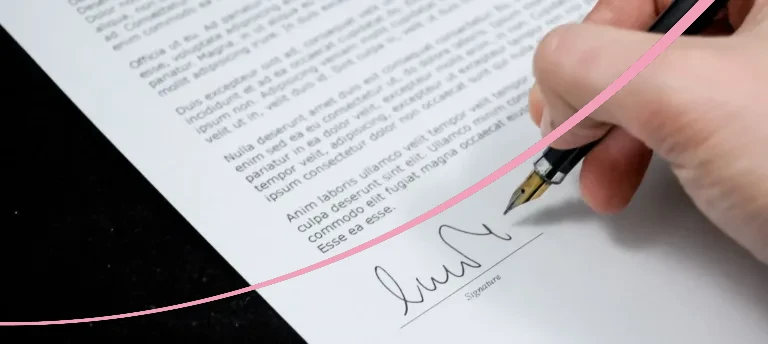More than three years after the Renters’ Reform Bill was first pledged by the government, the industry is still waiting for the legislation to be introduced.
Lodders’ Mary Rouse and Lauren Hutchison look back at the Renters Reform Bill’s progress to date, and consider what might happen next.
Three and a half years ago – April 2019 – Theresa May’s government first pledged the Renters’ Reform Bill, which they described it as a “step change” in protections for renters, ending Section 21 evictions and giving landlords and tenants more rights.
The hope was the government would have a date for the legislation to be introduced before the end of the year (2022), but unfortunately there’s little to report.
One indication came from Housing secretary Michael Gove during an interview on the Radio 4 Today programme; when pressed on the issue by Nick Robinson on when the Bill will be introduced, Gove said: “It will come next calendar year – in 2023.”
What has happened with the Renters’ Reform Bill so far?
The Renters’ Reform Bill all began with a consultation in April 2019, when the Ministry of Housing, Communities and Local Government consulted on proposals to:
- end ‘no-fault’ evictions by repealing section 21 of the Housing Act 1988
- extend the grounds for possession under section 8
- remove landlords’ ability to grant new assured shorthold tenancies (ASTs) and
- improve the processing of repossession orders
In November 2019, the Conservative party manifesto included a commitment to introduce a Renters’ Reform Bill that would repeal section 21 and scrap new ASTs.
Things ground to a halt due to Covid, but it all ramped up again earlier in the year. The government outlined its proposals for the Renters’ Reform Bill in its A Fairer Private Rented Sector white paper released in June 2022 and has confirmed that it remains “committed to introducing a Renters’ Reform Bill in this session of Parliament” which ends in May 2023. If that’s right, then we’re moving ever closer to the proposed changes.
Whether section 21 will be repealed remains to be seen. There’s real fear this would result in fewer properties being available to rent with buy-to-let landlords opting to sell now, for fear of being tied to much longer tenancies and difficulties getting their properties back. For this reason, there’s likely to be considerable opposition. However, for now, the government is telling us section 21 will go.
The proposal is to counter that with the grounds for possession under Section 8 of the Housing Act 1988 being extended to include a ground for use if the landlord intends to sell their property. This would be coupled with a ban on the landlord reletting the property for a certain period to avoid landlords abusing the ground.
What else do the proposals include?
- Making all tenancies periodic – with no fixed terms at all.
- Removing arbitrary rent review clauses, increasing the notice period for rent increases.
- Extending the Decent Homes Standard (currently only applied to social housing) to the private rented sector.
- Making it illegal for landlords to have blanket bans on renting to families with children, or those on benefits.
- Improving the rights of tenants to have pets in properties.
Whilst it’s true that something needs to be done to tackle ‘rogue’ landlords, to aid tenants living in appalling conditions, and the Decent Homes Standard is not onerous for the majority of landlords who look after their properties.
For those whose properties don’t meet the standard, tenants will no longer have to pursue lengthy disrepair claims – a tribunal will be able to require landlords to repay rent to tenants whose properties don’t comply with the Housing Health and Safety Rating System.
Mandatory grounds
There is also a proposal to introduce more mandatory grounds for possession where there are serious rent arrears, and its likely tenants will have to give two months’ notice to vacate.
The White Paper includes measures to support landlords:
- A new private rents’ ombudsman to enable disputes to be settled quickly, at low cost, without going to court.
- A property portal offering a ‘single front door’ to enable landlords to understand and comply with their responsibilities whilst also giving councils and tenants the information they need to tackle rogue landlords.
Viewpoint
There’s no doubt that some reform is needed, but for decent landlords, trying to remove tenants who know how to play the system, may feel it’s a bit of a hammer to crack a nut, with landlords finding it more difficult to obtain possession, if it wasn’t difficult enough.
What is being proposed will involve a substantial rewriting of legislation – it’s very difficult to repeal one section because of the impact it will have on other sections. Let’s hope that enough time is given to ensure that they get the legislation right to avoid the confusion that so often arises when new housing legislation is introduced. Chances are the new law won’t be introduced until October 2023 at the earliest, more likely in 2024.
Lodders will continue to monitor progress of the Bill and keep abreast of developments, so watch this space.
Watch our recent webinar here.
More information
Mary Rouse, Legal Director at Lodders, specialises in residential property disputes, including landlord and tenant disputes. Lauren Hutchinson, associate in Lodders’ Dispute Resolution team, advises both private individuals and business owners n a broad range of commercial and contractual disputes, as well as property disputes.
Contact usCONTACT US
Need more advice?
Mary specialises in residential property disputes from boundary disputes to adverse possession, landlord and tenant disputes. Mary’s expertise extends to housing management issues for social and private landlords, residential disrepair, and trusts of Landlord and Appointment of Trustees Act (TOLATA) claims.

Read more
Other news, insights and events







